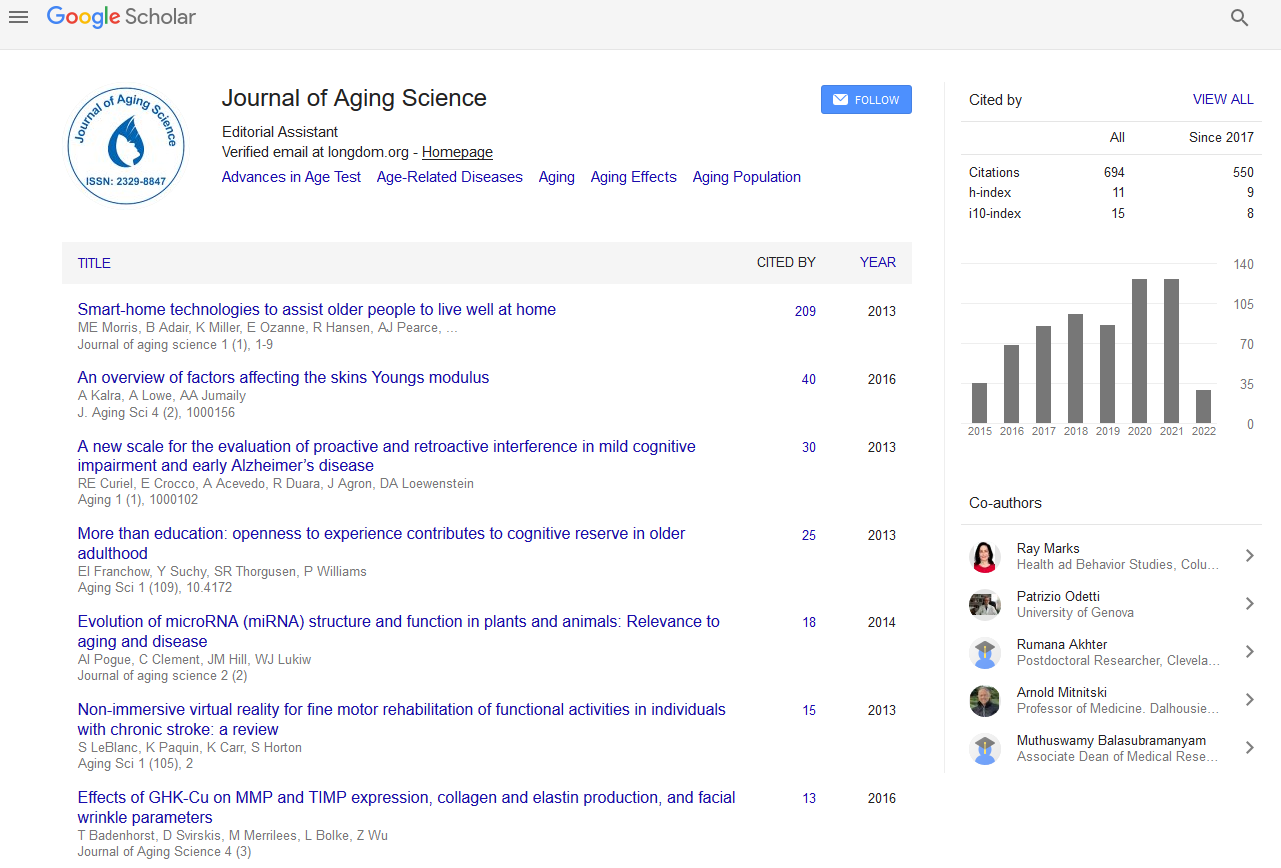PMC/PubMed Indexed Articles
Indexed In
- Open J Gate
- Academic Keys
- JournalTOCs
- ResearchBible
- RefSeek
- Hamdard University
- EBSCO A-Z
- OCLC- WorldCat
- Publons
- Geneva Foundation for Medical Education and Research
- Euro Pub
- Google Scholar
Useful Links
Share This Page
Journal Flyer

Open Access Journals
- Agri and Aquaculture
- Biochemistry
- Bioinformatics & Systems Biology
- Business & Management
- Chemistry
- Clinical Sciences
- Engineering
- Food & Nutrition
- General Science
- Genetics & Molecular Biology
- Immunology & Microbiology
- Medical Sciences
- Neuroscience & Psychology
- Nursing & Health Care
- Pharmaceutical Sciences
WHY UNDER-RATED? THE ROLE OF REHABILITATION IN THE GERIATRIC, HOSPICE AND PALLIATIVE CARE POPULATIONS
International Conference on Aging & Gerontology
August 8-9, 2016 Las Vegas, USA
Noelle Marie C Javier and Marcos Montaganin
Icahn School of Medicine at Mount Sinai, USA
University of Michigan Health System, USA
Scientific Tracks Abstracts: Aging Sci
Abstract:
Progressive disability is a common but significant problem in the hospice and palliative care population as well as geriatric patients with chronic and life-long illnesses. It leads to depression, isolation, poor quality of life and overall increased caregiver needs, health care utilization, and institutional care. Contributing factors may include but not limited to disease progression, muscle deconditioning, surgical and medical complications, malnutrition, neurologic deficits, musculoskeletal problems, pain and non-pain symptoms, and active comorbid medical issues. Rehabilitation is based on function and has been conceived of in stages to include the prevention of disability, restoration to the premorbid state whenever possible, support to reduce disability, and palliation to reduce complications. There are supporting studies that attest to the role of physical rehabilitation improving function and quality of life for these patients. In fact, the fastest growing and rehabilitation-requiring population is adults over 65 years of age. Therefore, a thorough and inter-professional assessment of the patient�??s medical, functional, and psychosocial status is critical in designing an appropriate and effective rehabilitation program. It is important to consider the patient�??s goals and preferences, current level of disability, potential for improvement, and the availability and cost of resources before implementing a care plan. Rehabilitation can be offered in a variety of settings to include inpatient, sub-acute, outpatient, and the home environment. This oral presentation discusses the concept and benefits of physical rehabilitation as well as the role of physical, occupational and speech-language therapy as core rehabilitation interventions.
Biography :
Noelle Marie C. Javier MD is an Assistant Professor of Medicine in the Icahn School of Medicine at Mount Sinai Health System in New York City. She received her fellowship training in both geriatrics and hospice and palliative medicine at the University of Michigan Health Systems in Ann Arbor, Michigan. She is a full time faculty in the clinician educator track in the Department of Geriatrics and Palliative medicine at Mount Sinai.
Email: noel.javier@mssm.edu


